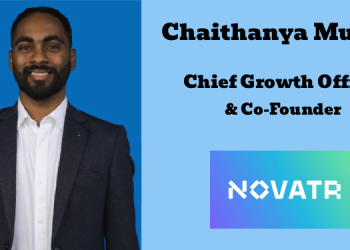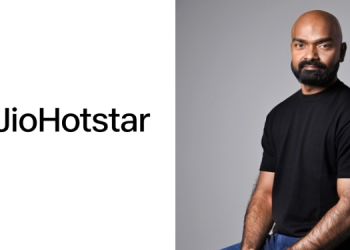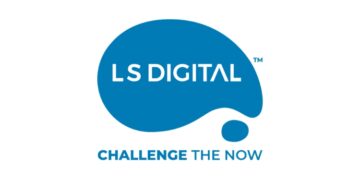By definition, metaverse is a virtual-reality space in which users can interact with a computer-generated environment and other users.
According to Fortune Business Insights’ report ‘Metaverse Market, 2022-2029’, the global metaverse market is projected to grow from $100.27 billion in 2022 to $1,527.55 billion by 2029. Tech giants like Meta, Microsoft, Apple, and Google are investing big money in this latest technology to build their own platforms.
Brands are not far behind. From gaming and entertainment to fashion labels, brands have joined the bandwagon and created their own metaverse business units. The first movers among consumers have also started sampling the new virtual universe. For creators, brands and consumers, it is still an evolving space.
MediaNews4u.com caught up with some professionals who are tuned in to the emerging virtual universe, to understand where it’s at and what it means for marketers.

“The metaverse, though yet to have a universal definition, from a marketing perspective is the convergence of the real world and the digital world. The evolution of marketing from a brick-and-mortar world to e-commerce will soon witness the transformation of itself into meta-commerce where consumers will be experiencing brands in a virtual world, in real time, using digital assets with integrated digital payment platforms. From a ‘Touch and feel’ purchase to a ‘View and buy’ purchase, it will soon be an ‘Experience and buy’ purchase in a virtual world,” says Pavan Padaki, Author Brand Vinci and branding coach.
Can brands reinvent marketing in the metaverse?

“We need to understand that metaverse isn’t just a trend to hop on but a new channel of marketing that has the potential of replacing all norms that we currently adhere to. Metaverses are virtual universes that merge reality and the virtual world, thus it becomes very important to find the right consumer connect and focus on creating a unique experience in order to create something truly impactful. Metaverse should be used to create activations and campaigns which consumers wouldn’t be able to experience in real-life. There is a tremendous opportunity to actually create tailor-made experiences that allow users to feel more special and connected to the brand,” says Dhruv Rajput, AVP — Integrated Solutions, Schbang.
Metaverse is a technologically advanced mechanism that brands can leverage and in most instances, brands will combine the marketing of virtual and physical goods with the immersive worlds they create in the metaverse, observes Abhay Sharma, CMO, MetaOneVerse, a startup with play in metaverse development, staking, NFT marketplace and blockchain.
He adds, “One of the most common ways is to give users a ‘skin’ or a blank, genderless avatar they can use to enter virtual storefronts and try on/purchase digital products. They can create their virtual products on metaverse and users can access it through VR gears, where they can explore products as similar to real time.”
“There are many different ways that brands can use the metaverse to interact with customers. Some of the easiest ways are: Creating NFTs that represents your brand or company. Sponsoring events within the metaverse such as gaming tournaments or music festivals,” adds Sharma.
“Metaverse presents a distinct advantage for marketers who start early on the verse,” observes Prince Thomas, Head of Marketing, BankBazaar.com.
“This positioning is somewhat similar to the nostalgic ads on DD before the cable TV revolution hit us. Those are ads that we all recall to minutest detail, thanks to the almost absent competition. Immersive meta branded experiences early could lead to very strong recall in the real world. Unlike the real world where marketing can seem intrusive, in the metaverse, brands could blend themselves into the natural digital state of the consumer,” adds Thomas.
Brand opportunities in the metaverse
“Right from creating their own metaverse or sponsor an event in the metaverse, the possibilities are unlimited. The key will always be to innovate and find what fits best in the consumer journey,” says Rajput.
He elaborates, “We can create NFTs, games, virtual spaces, and a whole lot more. However, the first question to ask yourself is ‘Where are my consumers most likely going to end up?’ It is important to understand the importance of GenZ and millennials as they are the primary adopters of the metaverse and if the idea is not focused on them, we will not be able to actually deliver results. Metaverse even eliminates the role of celebrity and influencer endorsements as mere faces of a campaign. They can actually be utilized in a better manner if we manage to get users to meet their favourite celebrities in real time. Remember when Ranveer Singh actually got on group video calls for Bingo and the noise it created? Now multiply that at least five times. That’s the reach that metaverse can bring in. Unlocking the true potential of metaverse lies in understanding what your users will engage with.”
“For now, the Metaverse’s evolution is going to be dependent on the availability, accessibility and affordability of its hardware, its glitch-free content and speed of consumer adaptation,” observes Padaki.
“Observing the marketing evolution in the recent past, it looks like all the three worlds, brick and mortar, e-commerce and meta commerce are all going to co-exist. Brands need to be consistent in their brand positioning, brand promise and brand personality across all the three formats to give customers a cohesive brand experience. With the emergence of metaverse-commerce, e-commerce brands would provide a highly personalised shopping experience and can expect a big reduction in return-goods, saving substantial time and money. There will be no need for customers to suspect or believe the customer reviews posted on e-commerce platforms and social media, they could directly interact with other buyers in real time in the metaverse for a more authentic review and opinion,” he adds.
Challenges in the metaverse world
In a continuously evolving space like metaverse, it is a challenge to stay updated on the latest, note practitioners.
“Since knowledge is limited, the ideas can be limited too. Not having enough technical understanding of the metaverse can lead to stagnant and out-dated ideas. Thus, creative minds need to brush up on technical knowledge as well, so as to deliver appropriate ideas. With metaverse, focus on 3D is going to be much higher too. Brands and agencies need to quickly be able to develop 3D mapping and architecture capabilities in order to turn-around ideas at higher speeds. We are moving at quicker speeds then we are used to. It took 30 years for the internet to become what it is but the metaverse is going to reach its prime sooner than expected. Thus, it is important for us to move at the same pace if not faster,” says Rajput.
“Like with most things digital, the way data privacy will be handled needs to be seen. Secondly, since there is no unified verse yet, picking the right one will be a challenge that marketers have to deal with. It is also very early to understand what will be the unique measurable KPIs that will define success and failure of metaverse strategies or investments. In the endm Metaverse may not replace existing marketing plans of a company but merely compliment them,” adds Thomas.

















